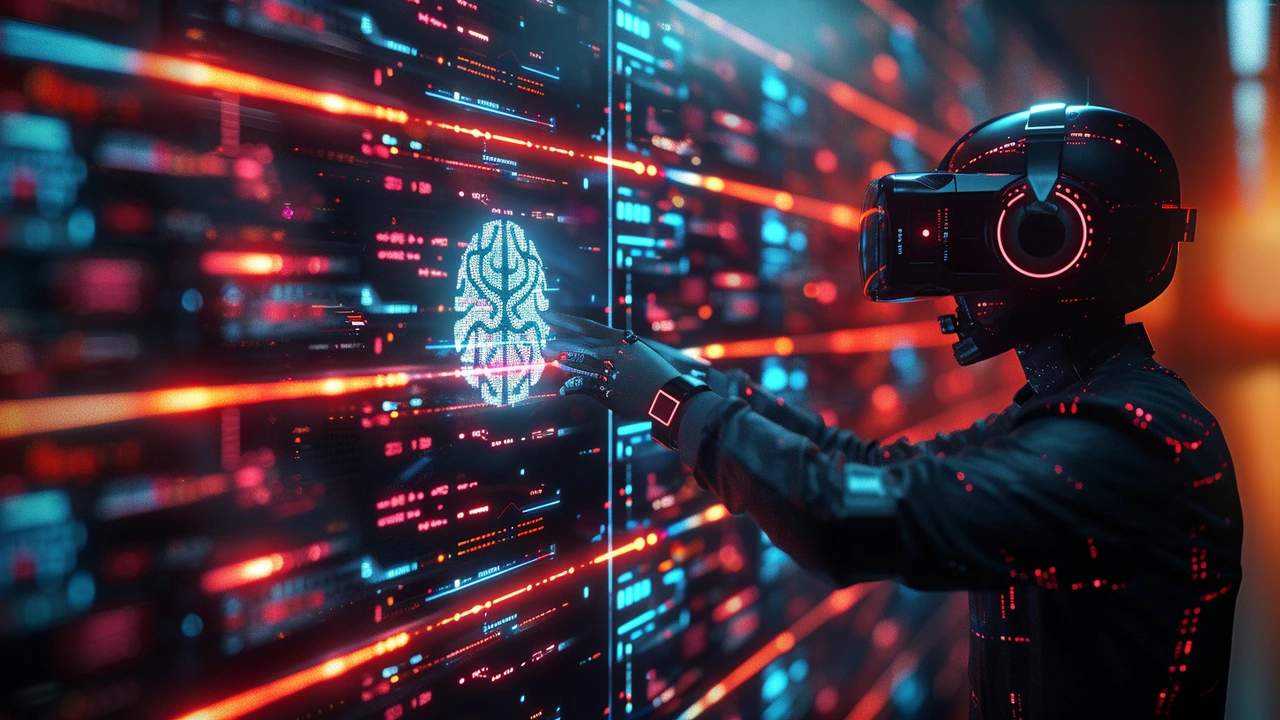Unveiling the Magic Trick: How AI Code Works
If I were to tell you that I have a secret which is rapidly transmuting the world as subtly as a magician does a trick, would you believe me? Well, wipe those incredulous looks off your faces, because such a secret does exist. And it exists in the form of coding for Artificial Intelligence (AI). Now, the transformation isn't as instantaneous as pulling a rabbit out of a hat. But believe me, it's just as fascinating, if not more.
AI's coding goes beyond lines and brackets. It's akin to establishing sophisticated dialogues with computers. These dialogues lead to the generation of intelligent systems capable of learning, adapting and evolving on their own. For instance, who would have thought that a search engine could predict our needs, or maps could anticipate traffic and suggest alternate routes? This is but a small sample of the wonders that coding for AI has brought about.
The Birth of Intelligent Society: AI's Impact on Various Sectors
The impact of AI’s coding is being felt across various sectors, making it nothing less than a tech-induced industrial revolution. From healthcare to retail, from transportation to education, every sector is experiencing the silent whisper of change. It is as if a factory where robots produce independently without human intervention could belong to science fiction. But that is not the case anymore.
In healthcare, AI algorithms can predict health risks, suggest personalized treatment plans, and even detect diseases like cancer early. Retailers now use AI to predict consumer behavior, generate individualized deals, and manage inventories efficiently. Autonomous vehicles, most likely to be our companions in the near future, are powered by AI. In education, teaching is getting highly personalized with AI predicting a learner's pace and suggesting custom study materials. This is just the tip of the iceberg. Coding for AI is redefining the possibilities in ways we never dreamt of.
One Man's Journey: Coding for AI in My Own Life
You know me as Alaric, the guy who loves sharing his insights about technology in the world of blogging. But I am also a passionate coding nut. Back in my college days, I was fascinated by the untapped potential of AI. This fascination led me to learn to code specifically for AI applications.
I recall a project where we had to build a predictive stock market model using AI. The coding was intricate and often intimidating. But as I delved deeper, realizing the predictive capabilities of AI was nothing less than astonishing. With each line of code, we were not just tasking the system but teaching it to understand patterns and make predictions. Looking back, I realize this wasn't merely a project but a journey of understanding the profound potency of coding for AI.
The Art of AI: Coding Skills to Master
The world of coding is a little like learning a new language. It's all in the syntax, the semantics, and the flow. But when it comes to coding for AI, it's more like learning the art of poetry in a language. It requires a blend of mathematical proficiency, algorithm understanding, and fluency in specific coding languages.
Python is the most widely-used programming language for AI, due to its simplicity and wide range of machine learning and data analysis libraries. Java, R, and Lisp too find applications in AI coding. Along with mastering these languages, understanding of neural networks, natural language processing, and robotics are crucial. Equally important is to have a curious mind, thirst for knowledge, and buckets full of patience as AI coding is an unceasing exploration.
What’s Next? The Future of Coding for AI
When it comes to prognosticating the future of AI, it's parallel to gazing into a crystal ball with endless possibilities. As the field is ever-evolving, its coding is becoming more sophisticated, complex, and robust.
Interestingly, AI systems are now being trained to code themselves, introducing the concept of machine-written software. Future AI models will likely need less data, be explainable, and will be more efficient. We are heading towards a future where AI coding will not just be about developing systems but also managing the nuances of diverse societal, ethical, and legal aspects.
Thus, the coding for AI is indubitably a guiding light shaping and reshaping the contours of a promising future. It's beyond a mere technological feat and is scripting the symphony of a smarter and better world. As we continue to explore and learn, let's hold on to our excitement and amazement like children enjoying their favourite magic trick. Because, after all, isn't that what makes life so fascinating?

